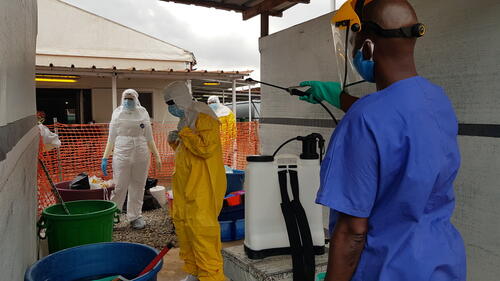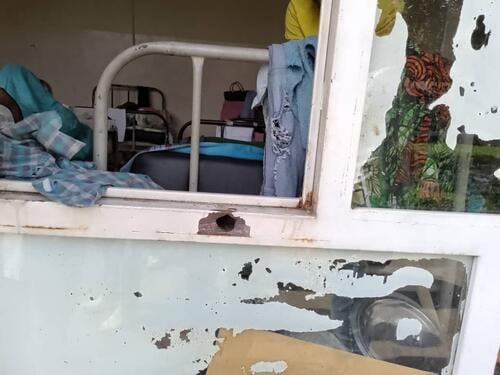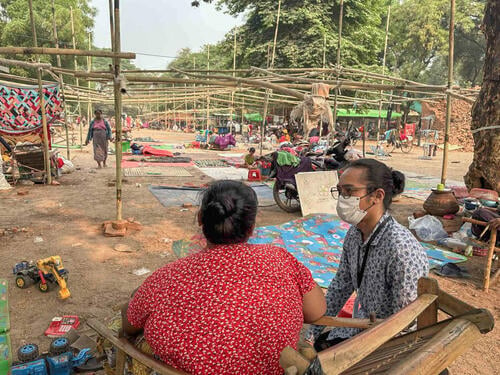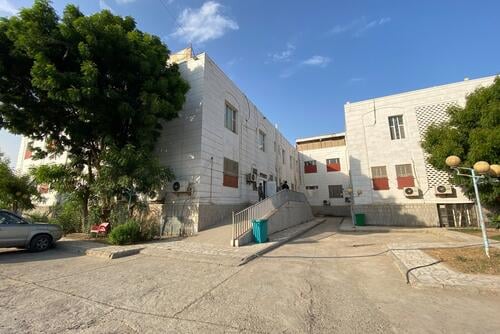Médecins Sans Frontières (MSF) is sending additional resources to support the COVID-19 response in Guinea, one of the countries on the African continent most affected by the virus, with nearly 2,000 confirmed cases. MSF will provide healthcare for patients in Conakry, the Guinean capital.
The number of people infected with COVID-19 has increased rapidly in the country since the first cases appeared in March. Five years after the ravages caused by the West Africa Ebola epidemic, the new coronavirus is posing an additional challenge in this country where access to healthcare remains a daily challenge due to shortages of health facilities, medical staff, equipment and drug supplies.
“In this context, we immediately decided to support the response in Guinea and assist the Nongo epidemic treatment centre in Conakry,” says Arnaud Badinier, MSF head of mission in Guinea. “We know this centre very well, as it was MSF who set it up in 2015 as part of our response to the Ebola epidemic. We then handed it over to the national health authorities.”
Rehabilitating and expanding Nongo treatment centre was urgent given the rapid overcrowding of Donka hospital, the only health facility designated to receive COVID-19 patients in the first weeks of the crisis.Arnaud Badinier, MSF head of mission in Guinea.
All beds in the hospital are already full
MSF teams have rehabilitated a large area of the treatment centre in recent weeks to bring it back to standards. A new isolation and care centre can accommodate 75 stable patients. Our teams are also disinfecting the homes of patients admitted to hospital, providing psychosocial support, and tracing and following up on their contacts.
“Rehabilitating and expanding Nongo treatment centre was urgent given the rapid overcrowding of Donka hospital, the only health facility designated to receive COVID-19 patients in the first weeks of the crisis,” says Badinier. “On the first day, around 20 people were immediately admitted, and 75 patients are currently in hospital.”
In Nongo epidemic treatment centre, MSF provides care for patients with mild symptoms of the disease but who need to be admitted to hospital according to national policy. Depending on the evolution of the pandemic and bed capacities in the city, an increase in the number of beds will be considered, as well as the medical management of more severe cases requiring treatment in hospital.
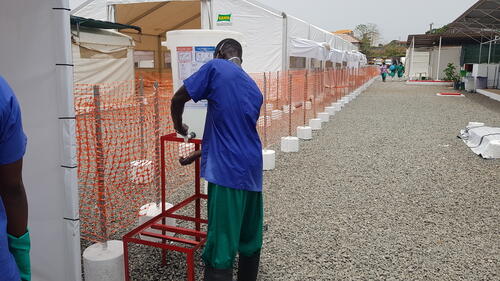
Maintain access to care
Many people currently hospitalised for COVID-19 in Guinea have a mild form of the disease and could benefit from follow-up outside hospital facilities. This would reduce pressure on hospitals and allow them to accommodate patients who need to be hospitalised for COVID-19 or any other disease.
“The health needs in Guinea are massive and access to care was already a challenge before COVID-19 and the current pandemic must not make things worse,” says Badinier. “The country recorded nearly 1.6 million cases of malaria in 2018, and an outbreak of measles swept through Conakry again last year.”
“Faced with the COVID-19 pandemic, it is essential to maintain access to other healthcare services in the country,” he says.
For MSF, the continuity of our medical services and projects in Guinea is a priority. In the cities of Conakry and Kankan, we continue to provide free care for children with measles in two facilities. Our malaria and malnutrition projects in Kouroussa prefecture, and the provision of care for patients living with HIV in Conakry, are also ongoing and our teams have adapted to the new pandemic by helping health facilities and communities to protect themselves from the virus.



